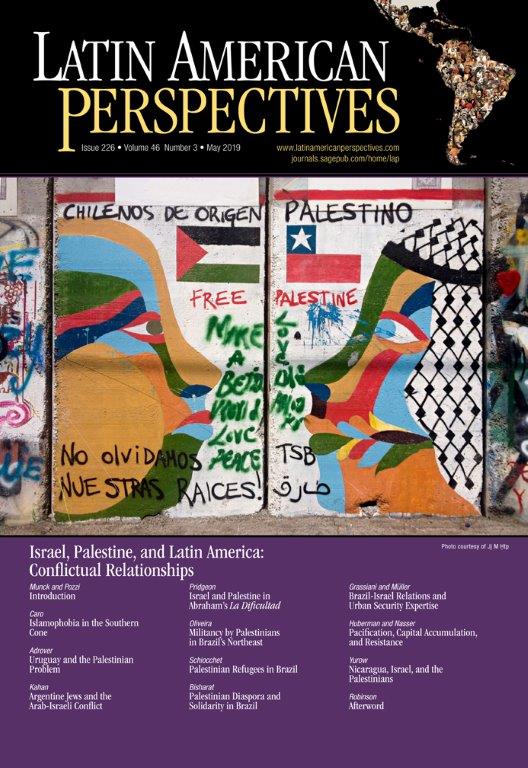Evolving Relationships: Nicaragua, Israel, and the Palestinians
Nicaragua occupies a special place in the Israeli-Palestinian impact on Latin America. Israeli–Somoza Dynasty ties and Palestinian-Sandinista ties have been well documented over the past 35 years. Yet while the facts are available, the interpretations are still fiercely debated. Both relationships have been portrayed largely in polemical terms. The Israeli-Somoza relationship was viewed as a pariah-state alliance or a “debt of honor.” The Sandinista-Palestinian relationship was viewed as a terrorist connection or brotherhood against a common enemy. Both relationships were seen as static when in fact, having begun as realpolitik, they evolved over time.
Nicaragua ocupa un lugar especial en cuanto al impacto israelí-palestino en América Latina. Los lazos israelí-dinastía Somoza y los vínculos palestino-Sandinistas han sido bien documentados en los últimos 35 años. Sin embargo, aunque los hechos están conocidos, las interpretaciones siguen intensamente debatidas. Ambas relaciones han sido presentadas en gran medida en términos polémicos. La relación israelí-Somoza fue vista como una alianza de estados parias o una “deuda de honor.” La relación Sandinista-palestina fue vista como una conexión terrorista o hermandad contra un enemigo común. Ambas relaciones se consideraron estáticas cuando, de hecho, comenzando como realpolitik, evolucionaron con el tiempo.
Nicaragua ocupa un lugar especial en cuanto al impacto israelí-palestino en América Latina. Los lazos israelí-dinastía Somoza y los vínculos palestino-Sandinistas han sido bien documentados en los últimos 35 años. Sin embargo, aunque los hechos están conocidos, las interpretaciones siguen intensamente debatidas. Ambas relaciones han sido presentadas en gran medida en términos polémicos. La relación israelí-Somoza fue vista como una alianza de estados parias o una “deuda de honor.” La relación Sandinista-palestina fue vista como una conexión terrorista o hermandad contra un enemigo común. Ambas relaciones se consideraron estáticas cuando, de hecho, comenzando como realpolitik, evolucionaron con el tiempo.
CONTINUE READING THE FULL ARTICLE HERE



